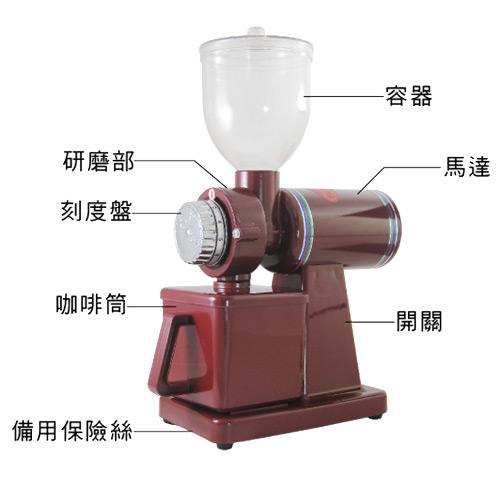There are many disadvantages for the following six kinds of people to drink coffee. What are the advantages and disadvantages of drinking coffee regularly?
For professional baristas, please follow the coffee workshop (Wechat official account cafe_style)
Before we figure out the pros and cons of drinking coffee, we can look at the main ingredients of coffee.
Caffeine: it has a particularly strong bitter taste and stimulates the central nervous system, heart and respiratory system. Appropriate amount of caffeine can also reduce muscle fatigue and promote digestive juice secretion. Because it promotes kidney function, it is diuretic and helps the body to expel excess sodium ions from the body. But eating too much can lead to caffeine poisoning.
What are the advantages and disadvantages of drinking coffee regularly?
Coffee
Tannic acid: the boiled tannic acid will decompose into pyrouric acid, so the coffee that has been brewed for too long will taste worse.
Fat: the most important ones are acid fat and volatile fat.
Acidic fat: that is, fat contains acid, its strength will vary according to the type of coffee.
Volatile fat: is the main source of coffee aroma, it is a kind of aroma will emit about 40 kinds of aromatic substances.
Protein: the main source of calories, the proportion is not high. Most of the protein in coffee powder will not dissolve out when brewing coffee, so the intake is limited.
Sugar: coffee beans contain about 8% sugar. After baking, most of the sugars are converted to caramel, which browns the coffee and combines with tannins to produce sweetness.
Fiber: the fiber of raw beans will be carbonized after baking and combine with caramel to form the hue of coffee.
Minerals: contains a small amount of lime, iron, phosphorus, sodium carbonate and so on.
The advantages and disadvantages of drinking coffee: first of all, let's take a look at the advantages and disadvantages of drinking coffee.
1. Coffee contains certain nutrients. Nicotinic acid in coffee contains vitamin B, which is higher in roasted coffee beans. And there are free fatty acids, caffeine, tannic acid and so on.
two。 Coffee is good for the skin. Coffee can promote metabolic function, activate digestive organs, and has a great effect on constipation. Taking a bath with coffee powder is a kind of thermotherapy, which has the effect of losing weight.
3. Coffee has the function of relieving alcohol. Drinking coffee after drinking alcohol will quickly oxidize the acetaldehyde converted from alcohol, decompose it into water and carbon dioxide and discharge it out of the body.
4. Coffee can relieve fatigue. In order to eliminate fatigue, we must supplement nutrition, rest and sleep, and promote metabolic functions, and coffee has these functions.
5. Three cups of coffee a day can prevent gallstones. For caffeinated coffee, it stimulates gallbladder contraction and reduces cholesterol, which is prone to gallstones. The latest Harvard University researchers found that men who drank two to three cups of coffee a day were less than 40% likely to get gallstones.
6. Drinking coffee regularly can prevent radiation damage. Radiation damage, especially the radiation of electrical appliances, has become a prominent pollution at present. Indian Barba atomic researchers have come to this conclusion in mouse experiments and say it can be applied to humans.
7. The health care and medical function of coffee. Coffee has the functions of anti-oxidation and heart protection, strengthening muscles and bones, benefiting waist and knees, appetizer, eliminating fat and accumulation, promoting orifice and dehumidification, promoting blood circulation and removing blood stasis, relieving wind and relieving spasm and so on.
8. The influence of coffee on mood. Experiments show that the average person absorbs 300 milligrams of caffeine (about 3 cups of brewed coffee) a day, which has a good effect on a person's alertness and mood.
The pros and cons of drinking coffee: excessive use has many disadvantages
In the case of long-term intake, large doses of caffeine is a drug that can cause "caffeine poisoning". Caffeine poisoning includes addiction and a range of physical and psychological side effects, such as nervousness, irritability, anxiety, tremors, muscle convulsions (hyperreflexia), insomnia and palpitations (most people take caffeine because of its irritating effects. Many students take caffeine pills when preparing for exams and those on night shifts. Under the strict definition of addiction, only a gradual increase in dosage is addictive, and caffeine dependence is more appropriate, but under a widely accepted definition, all chronic behaviors that are difficult to get rid of are called addictions. so it can also be described as caffeine addiction.) In addition, because caffeine can increase stomach acid, sustained high doses can lead to peptic ulcers, erosive esophagitis and gastroesophageal reflux disease. However, because both normal coffee and decaffeinated coffee stimulate the gastric mucosa and increase gastric acid secretion, caffeine may not be the only ingredient in coffee.
Four caffeine-induced disorders verified by the Diagnostic and Statistical Manual of Mental Disorders (fourth Edition) include caffeine overexcitement, caffeine anxiety, caffeine sleep disorders and other caffeine-related disorders.

The advantages and disadvantages of drinking coffee are summarized as follows
1. Coffee contains certain nutrients. Nicotinic acid in coffee contains vitamin B, which is higher in roasted coffee beans. And there are free fatty acids, caffeine, tannic acid and so on.
two。 Coffee is good for the skin. Coffee can promote metabolic function, activate digestive organs, and has a great effect on constipation. Taking a bath with coffee powder is a kind of thermotherapy, which has the effect of losing weight. Drinking a cup of coffee after a meal is also good for digestion.
3. Coffee has the function of relieving alcohol. Drinking coffee after drinking alcohol will quickly oxidize the acetaldehyde converted from alcohol, decompose it into water and carbon dioxide and discharge it out of the body.
4. Coffee can relieve fatigue. In order to eliminate fatigue, we must supplement nutrition, rest and sleep, and promote metabolic functions, and coffee has these functions.
5. Three cups of coffee a day can prevent gallstones. For caffeinated coffee, it stimulates gallbladder contraction and reduces cholesterol, which is prone to gallstones. The latest Harvard University researchers found that men who drank two to three cups of coffee a day were less than 40% likely to get gallstones.
6. Drinking coffee regularly can prevent radiation damage. Radiation damage, especially the radiation of electrical appliances, has become a prominent pollution at present. Indian Barba atomic researchers have come to this conclusion in mouse experiments and say it can be applied to humans.
7. The health care and medical function of coffee. Coffee has the functions of anti-oxidation and heart protection, strengthening muscles and bones, benefiting waist and knees, appetizer, eliminating fat and accumulation, promoting orifice and dehumidification, promoting blood circulation and removing blood stasis, relieving wind and relieving spasm and so on.
8. The influence of coffee on mood. Experiments show that the average person absorbs 300 milligrams of caffeine (about 3 cups of brewed coffee) a day, which has a good effect on a person's alertness and mood.
The pros and cons of drinking coffee: the following six kinds of people drink coffee have many disadvantages
Suffering from high blood pressure, coronary heart disease, arteriosclerosis and other diseases-long-term or heavy consumption of coffee can cause cardiovascular disease.
Older women-Coffee reduces calcium and causes osteoporosis. After menopause, women need to add ten times the amount of calcium every day.
People with stomach problems-drinking too much coffee can worsen stomach problems.
Pregnant women-drinking too much coffee can lead to fetal malformation or miscarriage.
People with vitamin B1 deficiency-vitamin B1 can maintain the balance and stability of the nervous system, and coffee has a destructive effect on it.
Cancer patients-drinking too much coffee is at risk of cancer to normal people.
Doctors remind members of the public not to drink coffee on an empty stomach, because coffee will stimulate gastric acid secretion, especially people with gastric ulcers should be more cautious. Coffee as a drink, drinking, according to individual circumstances, enough, generally speaking in nutrition or emphasis on a balanced diet and less use of spicy stimulating food.
There are many advantages and disadvantages of drinking coffee. Drinking a moderate amount of coffee does not have much adverse effect. In addition, it is worth noting that people with high blood pressure should avoid drinking caffeinated drinks during periods of stress at work. Because caffeine in coffee can lead to a rise in blood pressure, coupled with emotional tension, it can have a dangerous multiplication effect.

Important Notice :
前街咖啡 FrontStreet Coffee has moved to new addredd:
FrontStreet Coffee Address: 315,Donghua East Road,GuangZhou
Tel:020 38364473
- Prev

Simple, rough and easy to use, let's bake coffee with a hand net.
Professional barista communication Please pay attention to the coffee workshop (Wechat official account cafe_style) every coffee person has the imaginary perfect flavor, single product is a sentence, blending beans is a poem, they bake and mix beans to create an ideal coffee world. Every cafe should have its own sign, which is a constant peace of mind for a thousand years. You know, if you go to this store at this time, you will drink.
- Next

How to choose a bean grinder? The importance of coffee grinder
Professional barista communication please pay attention to the importance of the coffee grinder in the coffee workshop (Wechat official account cafe_style): the bean grinder is often directly ignored in the coffee recruits! This is a really sad fact! Many novices buy coffee powder directly in the supermarket. But friends with a little common sense will know that the shelf life of coffee after roasting is very short. Generally
Related
- Beginners will see the "Coffee pull flower" guide!
- What is the difference between ice blog purified milk and ordinary milk coffee?
- Why is the Philippines the largest producer of crops in Liberia?
- For coffee extraction, should the fine powder be retained?
- How does extracted espresso fill pressed powder? How much strength does it take to press the powder?
- How to make jasmine cold extract coffee? Is the jasmine + latte good?
- Will this little toy really make the coffee taste better? How does Lily Drip affect coffee extraction?
- Will the action of slapping the filter cup also affect coffee extraction?
- What's the difference between powder-to-water ratio and powder-to-liquid ratio?
- What is the Ethiopian local species? What does it have to do with Heirloom native species?

